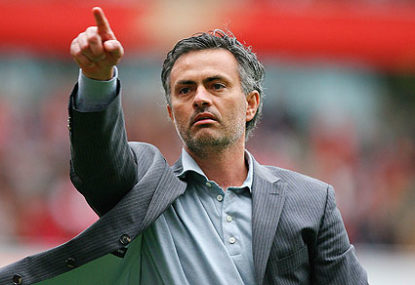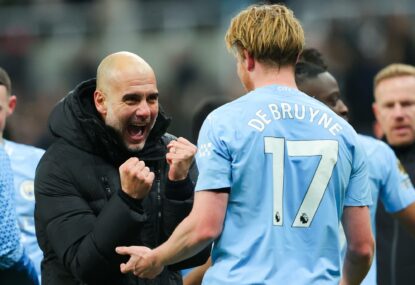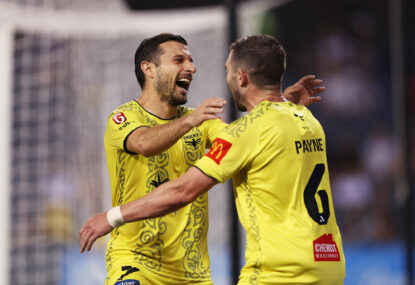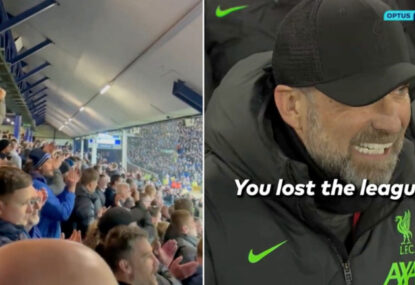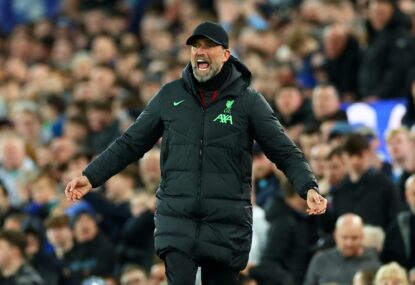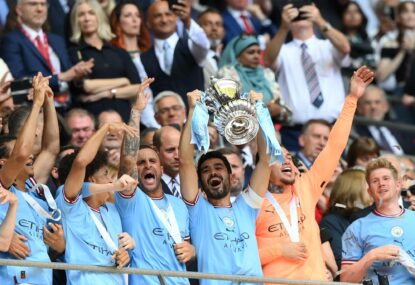Earlier in the year it was revealed that the Prozone Recruiter, a tool for scouting prospective young talent, would be basing its database on the immaculately compiled reservoir belonging to Sports Interactive, the company responsible for the Football Manager video game series.
Miles Jacobson, SI’s studio director, spoke to The Guardian.
“For years we’ve heard stories of real-life managers and scouts using our data to help with the recruitment process. From now on, it’s official…
“Real managers around the world will be finding and comparing players using data and a search system that will be very familiar to players of Football Manager.
“The information gathered by our network of more than 1,300 scouts around the world, combined with Prozone’s amazing performance data, makes this an invaluable tool for any football club that takes player recruitment seriously.”
Any long-time fans of the video game series won’t be surprised by this, at first glance, rather novel piece of news. By the way, there are no short-time fans of Football Manager, because the game offers addiction levels on par with crack cocaine, Pringles, self-stimulation, or perhaps all three at the same time.
You can open up your laptop, double-click on the game icon, then suddenly snap back into reality six hours later, as the night enters the wee hours, and only a couple of actual matches have been simulated. Perfect citizens, fathers, mothers, husbands and wives are transformed by the potent grip of FM into jittery, jaundiced junkies, pining for one more bop of that ‘Continue’ button in the top right corner.
As Iain Macintosh hypothesised in his excellent book ‘Football Manager Stole My Life’, countless marriages have no doubt been put perilously close to the edge of ruin by the game, not least pop star Robbie Williams’, whose blog post he included.
I got addicted to Football Manager AGAIN. They warned Ayda what would happen but I don’t think she was prepared for what was to come. [I’d] been on it day and night and the other day I decided to snap the disc because it all got too much. However (two days later) I re-ordered it on Amazon. It should come in the post tomorrow morning. Ayda will be thrilled!
If you don’t believe me, try it for yourselves, but heed this warning: just like the Hotel California, you can check-out any time you want, but you can never leave.
Anyway, the whole complex system that the game is built on earned a huge boost of credibility when the above news broke. Like Jacobson said, hearsay was given genuine plausibility, and now all the budding Guardiolas, Wengers and Mourinhos of the world are going to be practising their team talks, tinkering with their formations, and honing their negotiating skills on a platform in part shared by the very managers they hope to emulate.
So how effective is the system for unearthing future stars? Famously, Alan Dzagoev, the Russian attacker, scored twice in Russia’sopening of Euro 2012, and FM players everywhere smugly patted themselves on the back for signing him two years beforehand, in-game.
But not every wunderkind has a glittering future ahead of him, so if help is offered for sifting through the thousands of youth products, it is always welcomed.
Die-hard FM players will recognise the username Raikan007. A stalwart on the FM forums, he usually compiles an astounding list – the young, hot must-signs for each yearly incarnation of the game. FM players feverishly await the release of his shortlist in which he details hundreds of potential superstars, all under 21 years of age, many of whom are available for bargain-bin prices.
After the 2010/11 season had ended, the European football landscape was thus; Manchester United were English Champions, and Carlos Tevez and Dimitar Berbatov their goal-scoring wizards, with 20 apiece for the season. Alexandre Pato, Zlatan Ibraimovic and Robinho each scored 14 goals, as Milan won the Scudetto. Dortmund, with Marco Reus, Mario Gotze, Robert Lewandowski and Shinji Kagawa all still together, had clinched the Bundesliga title, despite Mario Gomez scoring 28 goals for Bayern Munich. And in Spain, Barca had triumphed for the third time running, beating out Madrid in the league by four points.
This view of the past, when contrasted with Milan and Manchester United’s current troubles, the break up of Dortmund’s attacking core, Bayern’s domestic dominance, and Barca’s raft of new signings, makes the current footballing vista seem a very different place.
If only United fans, or Dortmund supporters could take the reins of their clubs, at that high point, and avoid their dark destinies…
But, back to Raikan’s list. Coming highly recommended was an 18-year-old Czech attacker by the name of Matej Vydra, who was contracted to Udinese in Serie A, and was valued at around £825,000. Able to play across the line behind the striker, or indeed as the front man himself, Vydra was a versatile, gifted talent, blessed with deadly finishing (15 out of 20) above average passing ability (14) and a prodigious work-rate (18).
Real life Vydra has spent multiple seasons on loan at Watford in the Championship, and was almost promoted to the Premier League with them a few seasons ago. He then jumped up to the top tier in England, spending a season with West Bromich Albion, for whom he appeared 23 times and scored three goals. He has returned to Watford this season. Now 22, Vydra’s career has stalled slightly, stuck in this strange Udinese loan-limbo.
And to think, I sold him to Chelsea for a record fee after three great seasons at West Ham.
Another very highly touted youngster on the list was Yevhen Konoplyanka, a Ukrainian left-sided midfielder who is on the books at Dnipro. 20 years old, and valued at £1.5 million, he is a highly skilled dribbler (16 out of 20), aided by accomplished technique (15), with a penchant for injecting a little flair (14) into his game. With a wage of only £3,600 a week, he wouldn’t topple a fragile wage bill.
Back in present-day real life, Konoplyanka is still at Dnipro, but they have been bristling testily lately, shrugging off interest from West Ham, Manchester United, Spurs and Liverpool. With an apparent €15 million buy-out clause in his contract, a move away from the Ukrainian league beckons for the 25-year-old as he enters his prime years.
A star actually listed in-game as a defensive midfielder is recent Manchester City debutant Eliaquim Mangala. As he showed so imperiously against Chelsea, and then to much less positive effect against Hull City, the Frenchman is incredibly powerful, physically imposing, and willing to throw himself into any and all challenges.
He was all of those things when still a 19-year-old prospect at Standard Liege, strong (18 out of 20), brave (15) and dominant in the air (15). The database was finalised just too soon to include his 2011 move to Porto, so in FM 2011 he was a snip, valued at just under £2 million.
The Hull debacle aside, Mangala looks to have started life at City very well and, alongside Vincent Kompany, forms arguably the most intimidating centre back pairing in Europe.
One other name worth mentioning, plucked from the plethora of other equally worthy names on the list, was Christian Benteke. When the FM 2011 database listed him, he was on loan from Standard Liege at Antwerp’s KV Mechelen.
Standing 190 cm tall at age 19, Benteke had everything you would want in a traditional, all-action, bruising centre forward. Heading ability (16 out of 20), strength (16) and balance (17) were the most eye-catching parts of his player profile. But he was also blessed with refined attacking skills, possessing above average passing (13) and technique (12). Certainly he was raw and in need of some loving development, but what a prospect, and with a price hovering just over £2 million, it was a no-brainer for every club looking to make a leap forward.
Of course, the real-life journey Benteke made from Belgium to England was a bumpy one, a stunning first season with Aston Villa, followed by the inevitable transfer rumblings (which came to nothing), and a couple of seasons plagued by injury and despondency to follow.
He is still a domineering, muscular striker when on form, but the jury is still out on whether he can succeed, or indeed stay healthy, at the highest level of football.
The are countless other wild, prophetic successes, and others less prohpetic, the Freddy Adus of the world, if you will. The way that young talent is scoured, analysed and plucked in the modern game gets more sophisticated every year, and now Football Manager is part of its evolution.
The game itself is a vicious circle of habit-forming elation and dangerous, vortex-like obsession, so, with that caveat, I’d recommend it highly to all.
What have been some of your most successful signings in FM, and how have they done in real life?





























































































